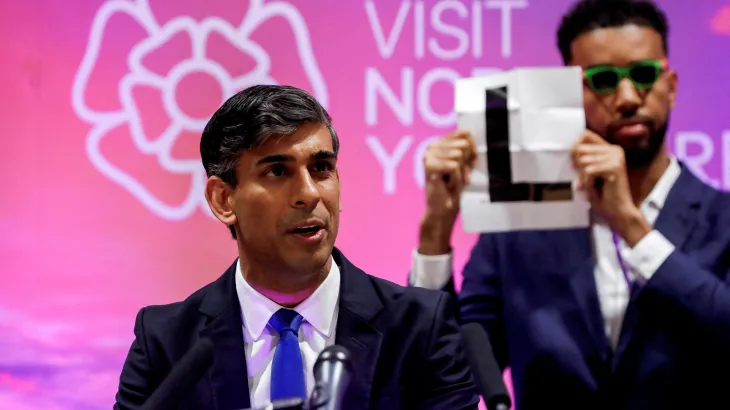The Labour Party, led by Keir Starmer, has achieved a historic victory in the UK general election, marking a significant political shift as the party returns to power after years of Conservative dominance. This remarkable turnaround follows a period marked by austerity measures and the complexities of Brexit under successive Conservative governments.
Labour’s Resounding Victory
Labour secured 412 of the 650 seats in the House of Commons, the most substantial win since Tony Blair’s landslide in 1997. This result grants Labour a commanding majority, ending 14 years of Conservative governance. Despite this decisive win in parliamentary terms, Labour’s support came from only 34% of the popular vote, highlighting the intricacies of the UK’s first-past-the-post electoral system. In comparison, the Conservative Party suffered its worst performance ever, winning only 121 seats, a drastic reduction from its previous strongholds.
Conservative Decline and Reform UK Surge
The Conservative Party, under Rishi Sunak, saw a significant vote share loss, which facilitated Labour’s rise. Nigel Farage’s Reform UK party also played a critical role, capturing right-wing Conservative votes across the country. Though Reform UK secured only four seats, their influence was evident in their ability to erode traditional Tory support.
The Conservatives faced internal and external challenges, including the fallout from scandals during Boris Johnson’s tenure, Liz Truss’s brief and turbulent premiership, and Sunak’s inability to regain public trust. Prominent Conservative figures such as Truss, Defence Secretary Grant Shapps, and House of Commons leader Penny Mordaunt were defeated in this election, underscoring the party’s struggles.
Strategic Shifts and Labour’s Campaign
Keir Starmer’s leadership focused on rebuilding Labour from the low point under his predecessor Jeremy Corbyn, who led the party to its worst defeat in over eight decades in 2019. Starmer repositioned Labour towards the political center, expelling Corbyn and presenting the party as a stable alternative to the troubled Conservative government. His victory speech emphasized the challenges ahead, reflecting his pragmatic approach: “I don’t promise you it will be easy. Changing a country’s not like flicking a switch.”
Rachel Reeves, set to become the UK’s first female Chancellor of the Exchequer, played a crucial role in Labour’s appeal to business and economic stability. The markets responded positively to Labour’s anticipated victory, with reduced volatility in currency and bond markets and a favorable outlook for investors.
Challenges and Voter Turnout
While Labour’s victory marks a dramatic political change, it also highlights underlying challenges. The turnout for this election was on track to be the lowest in a century, suggesting widespread voter disengagement and dissatisfaction with the traditional political parties. Labour’s success was more a rejection of Conservative policies than a wholesale endorsement of its platform.
Despite winning a majority of seats, Labour’s vote share did not reach historical norms for incoming governments, and some high-profile Labour figures, such as Jonathan Ashworth and Thangam Debbonaire, lost their seats. Corbyn, running as an independent, retained his seat, indicating the lingering divisions within the Labour voter base.
Implications for the Future
Starmer’s government now faces the challenge of addressing the issues that led to low voter turnout and discontent with the political system. The election results also suggest a need for Labour to solidify its broad but relatively shallow support base. Nigel Farage’s Reform UK, which gained significant vote share despite limited parliamentary representation, signals a potential future challenge for Labour as Farage shifts his focus towards targeting Labour voters.
Labour’s victory signifies a new era in UK politics, ending a period of Conservative rule and setting the stage for potential reforms and a renewed focus on economic stability. However, the election also underscores the complexities of the UK’s political landscape, where voter disengagement and the dynamics of the electoral system present ongoing challenges for the incoming government. As Keir Starmer takes office, the focus will be on navigating these challenges while delivering on promises of stability and change.








